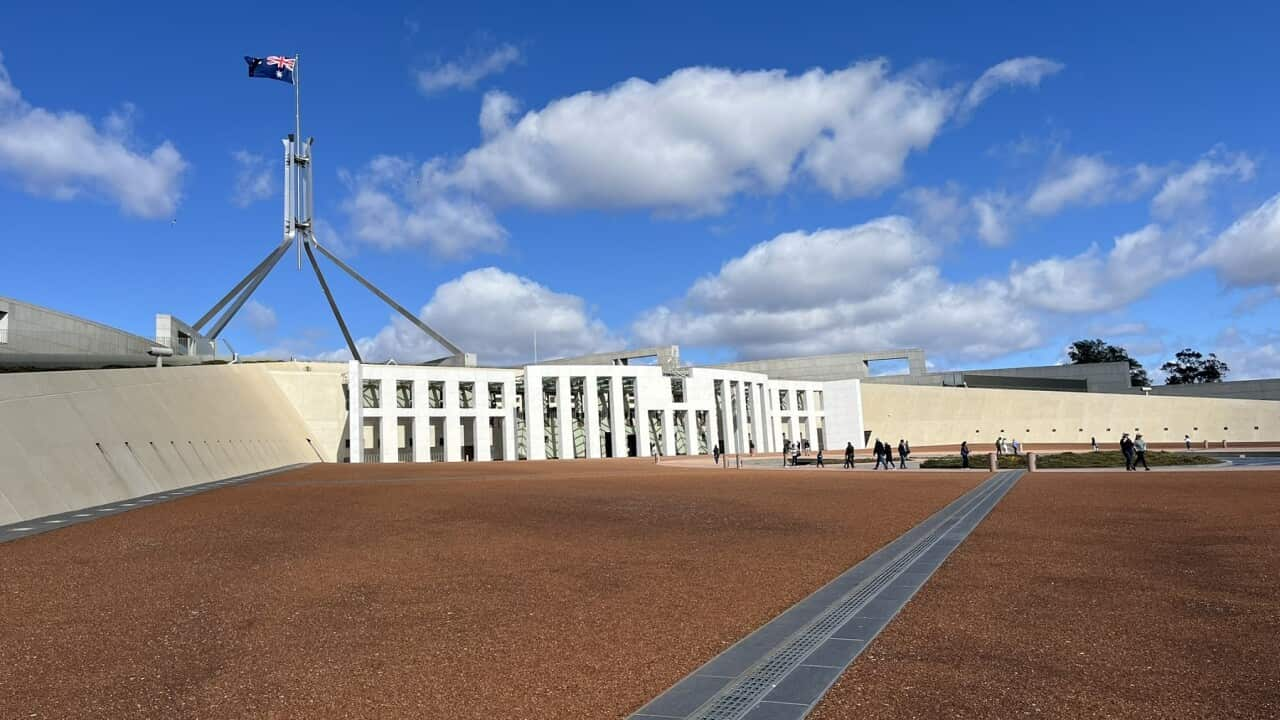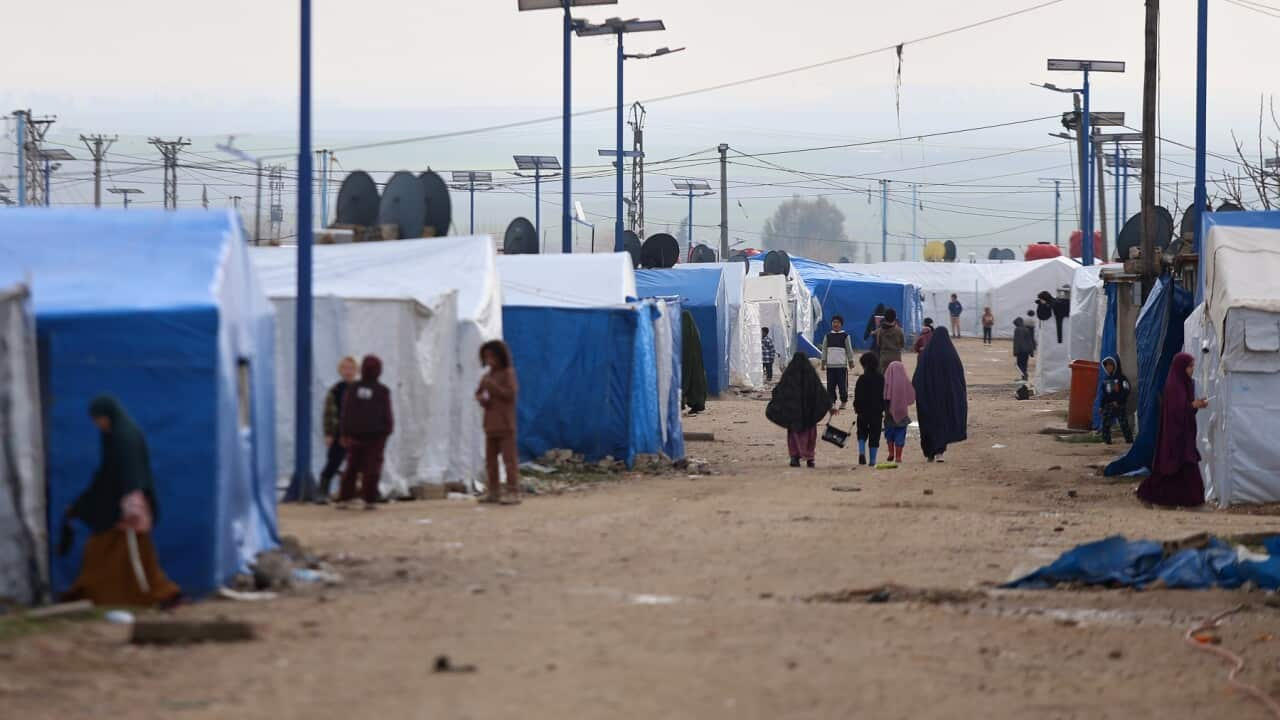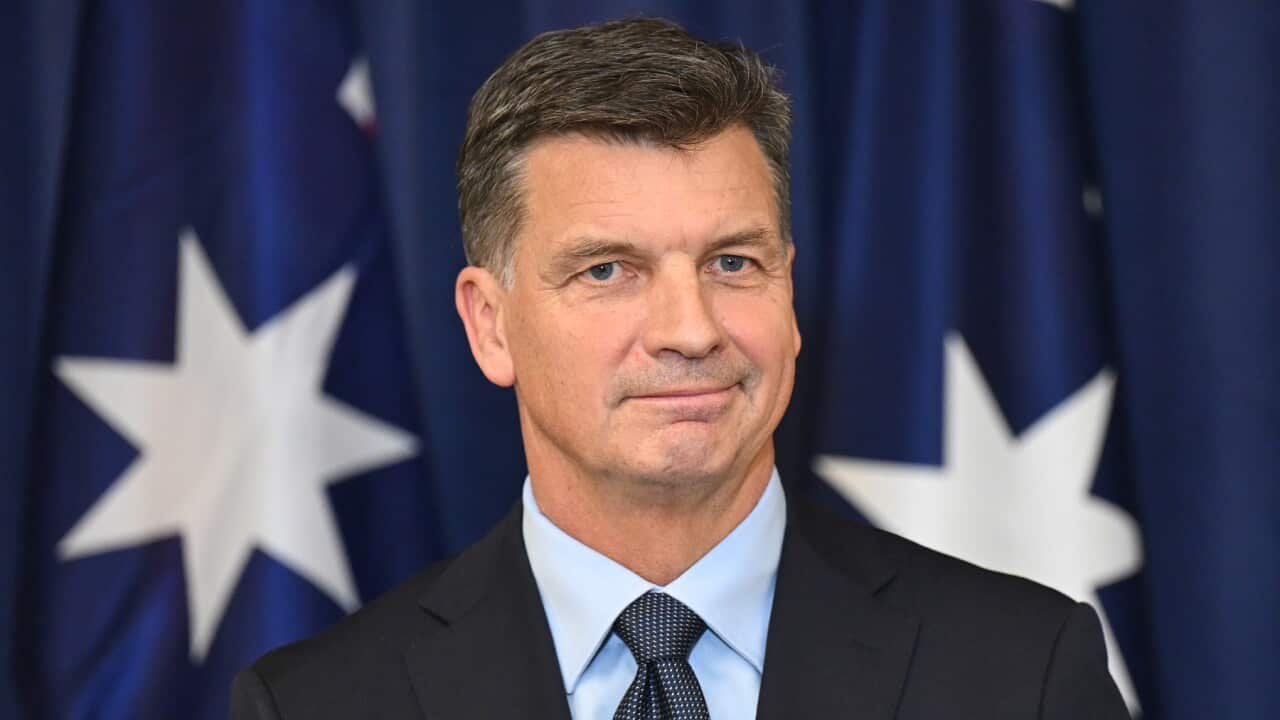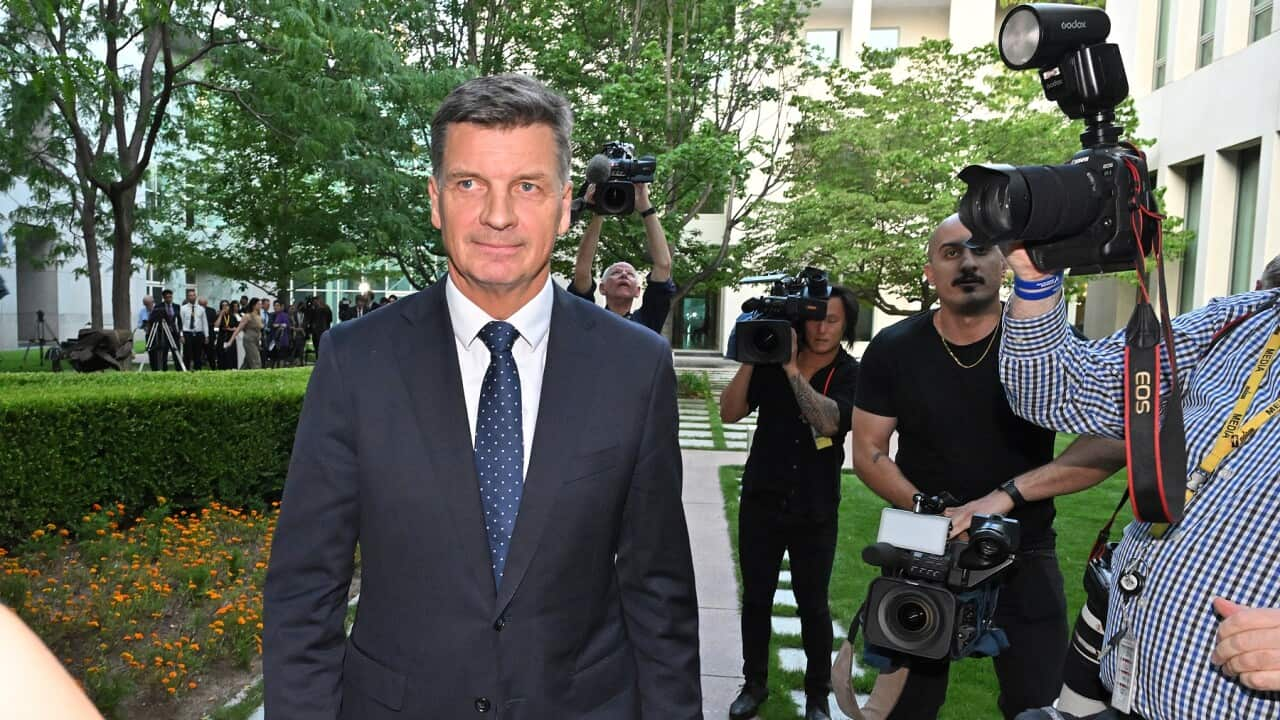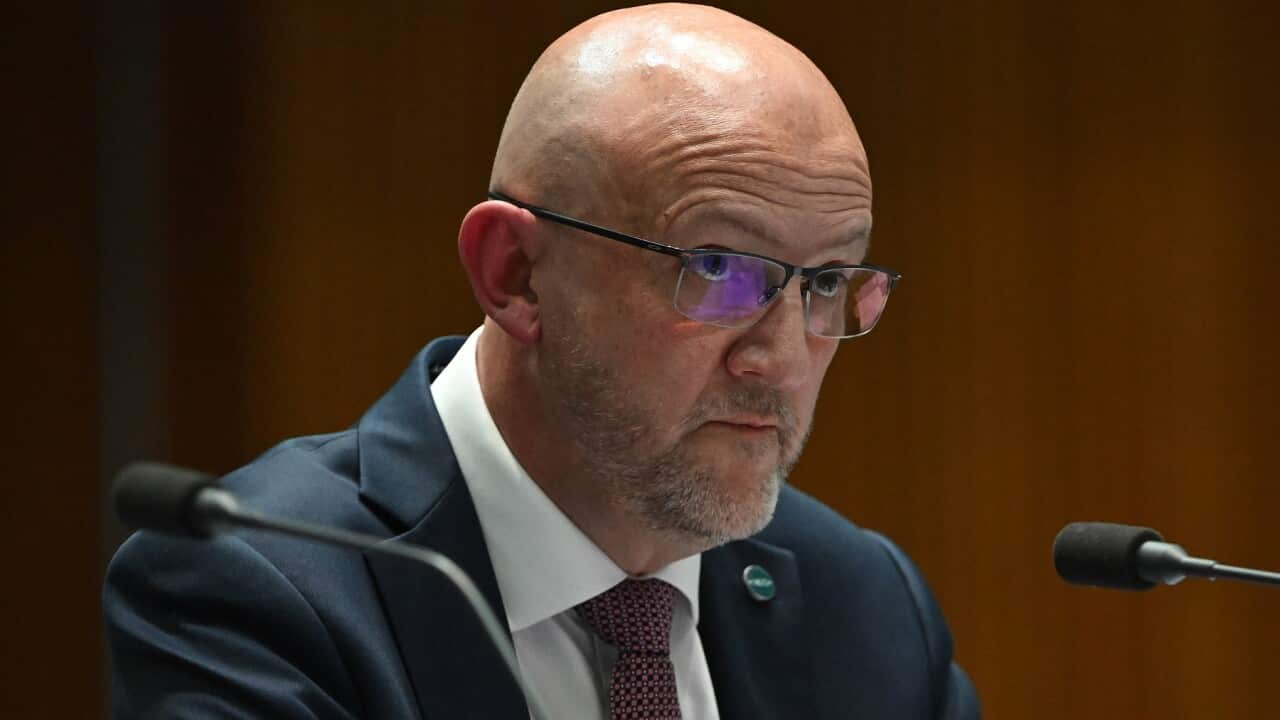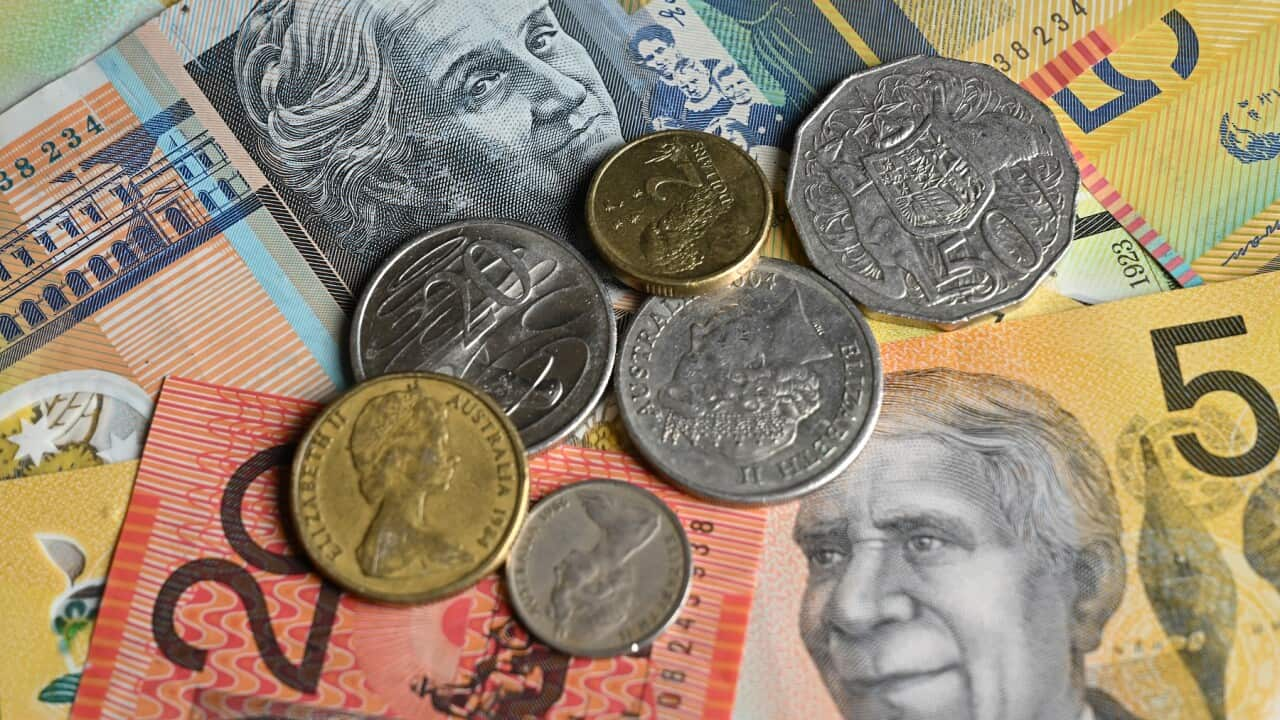Listen to Australian and world news, and follow trending topics with SBS News Podcasts.
TRANSCRIPT
"So, let’s be honest and up front about last month’s election. We didn’t just lose. We got smashed. Totally smashed. What we as the Liberal Party presented to the Australian people was comprehensively rejected."
That declaration of defeat was delivered by Liberal Party Leader Sussan Ley on June 25th, 2025.
In the months following the party's historic defeat, those words have echoed like an omen.
Since then, the Liberal Party has undergone organisational movement and policy shifts at the federal and state levels.
In Victoria, Brad Battin was ousted to install Jess Wilson as the first female leader.
In New South Wales Kellie Sloane has been elected as the new leader following Mark Speakman's resignation.
Turbulence is rife in the party - So what role does an opposition party play in a Westminster representative democracy?
Skye Predevac from the Australia Institute tells us what a Westminster Democracy is.
"The Westminster system is basically a bunch of procedures and protocols and traditions that come from the United Kingdom. So it's, you know, these hundreds of years of built up British traditions when it comes to democracy. And it looks like many things that we have in Australia, things like even having a prime minister, having two Houses of Parliament, having executive the executive branch, having ministers being politicians in members of parliament, parliamentary privilege, the hands are all of these things are part of this. And in this context, it also means having an opposition leader, because traditionally in the United Kingdom, they've only had two big parties, and they alternate between government so it makes sense to have a single person who's in charge of the opposition in a lot of other democracies. It doesn't work that way because they don't have those kind of two major parties."
Dr Jill Sheppard, a politican scientist from the Australian National University says the the opposition party plays a pivotal role in this system.
"It matters for half of the population, for 66% of the population that didn't vote for Labor and want to feel represented by someone, and if they don't feel represented, especially in a compulsory voting system, that is miserable, you know, so if you voted Liberal, or if you just didn't vote Labor, but every day, all you see is Labor, or all you see is criticism of a Liberal party, you start to feel like this is a government that doesn't speak for you at all. And we're not a one party state, like we're meant to be a parliamentary democracy in which the parties work together to come up with consensus on a whole range of policies. And if that's not happening, because Liberal Party can't even agree, you know, can't even come up with a consensus internally, then that that's really bad for how we feel about democracy."
Dr Sheppard notes that despite the Labor government receiving only 34% of the primary vote, it controls the legislative agenda, even without control of the Senate.
She says this is not good for the state of democracy.
Professor Mark Kenny from the Australian National University offers a traditional view of the Opposition's role.
He says they should act as an "alternative government in residence" responsible for negotiating legislation, setting the political agenda, and raising issues for discussion among other representatives.
Conversely, Dr Sheppard says that if assessing the party purely on the act of setting the political agenda, some might argue the Coalition is doing an effective job.
"You know, if we're being generous, we might say the Libs are doing really well on that. Because we're talking about immigration, we're talking about Net Zero, things that Labor doesn't necessarily want us talking about, and that, for better or worse, we're having conversations about those policies."
The problem, according to Professor Kenny, is that the federal Opposition is out of touch with the reality of the Labor government's current stronghold.
He says the Coalition is more concerned with internal divisions than becoming electable.
"What does that mean for the quality of government in the longer run? It's an interesting question. In the UK, we see this with the Reform Party led by Nigel Farage, has five seats in a 650-member House of Commons, and yet it's getting more media, really, more media coverage, even from the BBC, than the Lib Dems who've got about 73 seats. And the Greens, who've got, you know, more seats than than Farage and, of course, the Conservatives, who have more seats than all of them. But the Conservatives are, the polls suggest, are no longer going to be the main party of opposition to Labour as that country goes to its next election, Australia could be headed for a similar kind of trajectory."
Skye Predevac argues that a weak opposition is detrimental to the current system.
She says however that the fact that minority parties secured more seats than the Coalition in the last election suggests the two-party system is open to change.
"While we're still thinking of our country as divided into two parties, it is bad when the opposition party can't get attacks together and can't, you know, properly scrutinize what the government is doing. But on the other hand, those systems are choices that we've made essentially over the years. They're not set in stone. You know, some of them are by convention, some of them are by regulation, some of them by legislation. But having an opposition party is not in our Constitution, right? It's not something we are just ordained to always have, and other countries do it differently."
